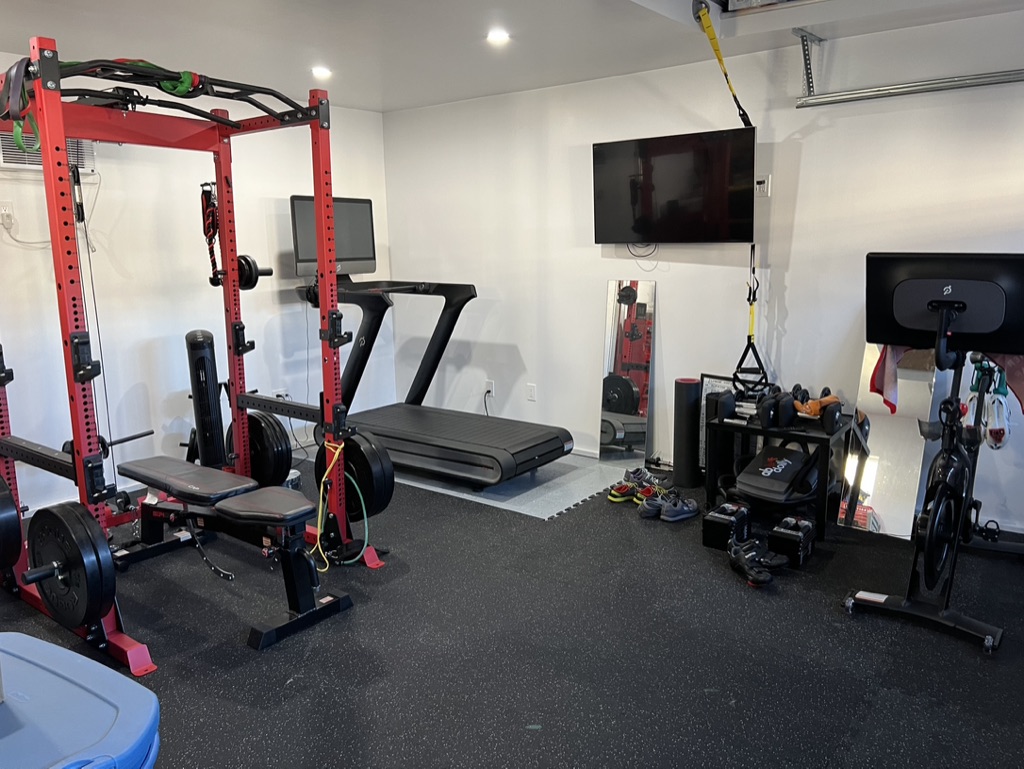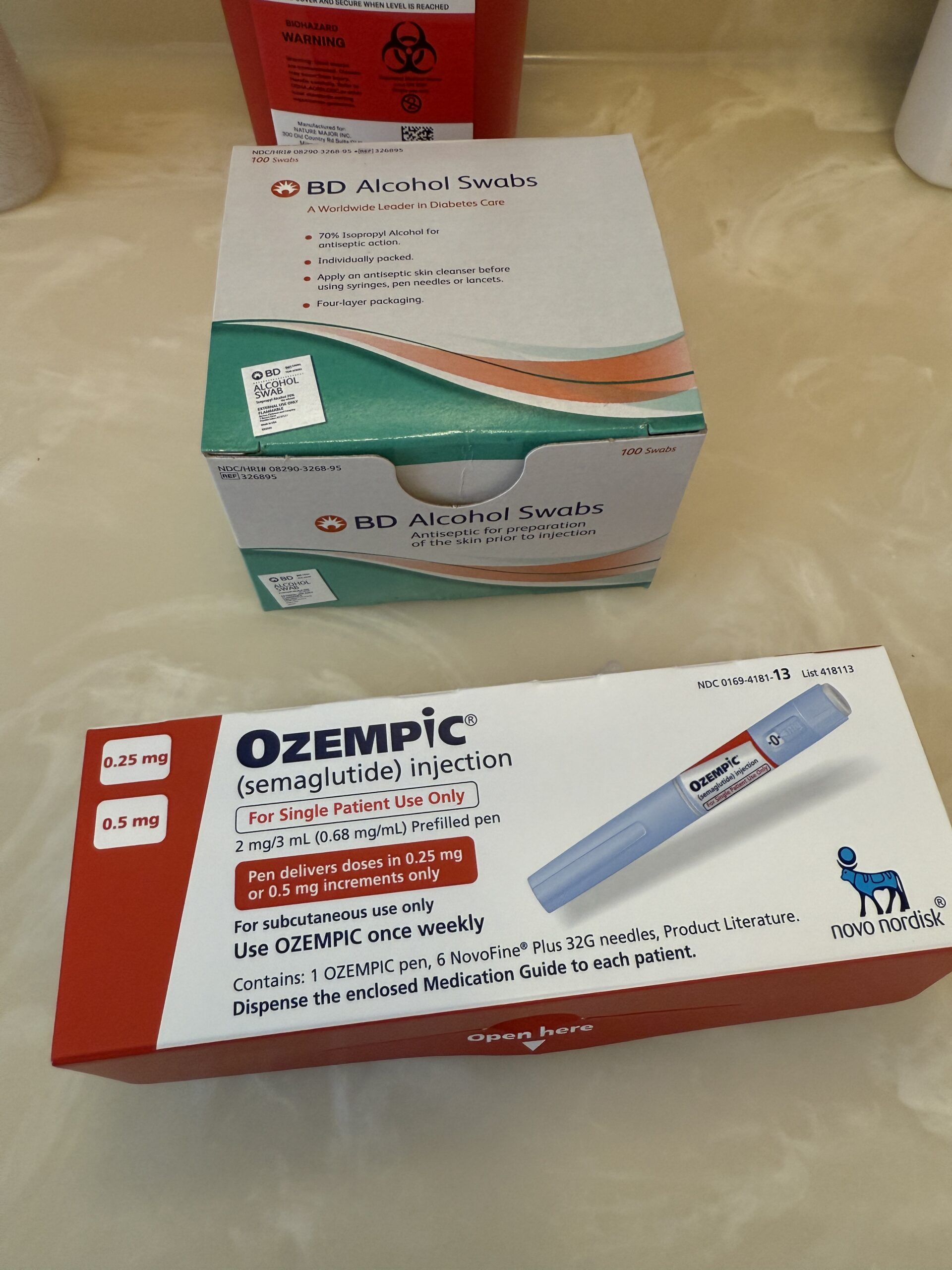
There are a lot of different answers to the question, “How often should I weigh myself?” Add it to the list of things to be confused about when trying to lose weight. To be fair, depending on the situation, the right answer can be different for different people.
The answer I give my online clients when they ask how often they should weigh themselves is that they should weigh in every day.
Daily weigh-ins, but a monthly viewpoint
Some people struggle with weighing daily. The ups and downs that are totally normal from day to day can take some getting used to. Often my online clients tell me that when they have weighed daily in the past, that a spike on the scale made them feel like they were doing something wrong.
This is where a shift needs to happen. I do want you to weigh in daily, but I want you to take a monthly viewpoint.
A day won’t make a difference
Imagine a jar of pebbles. One morning you remove one pebble. The jar does not look very different. However, if you remove a single pebble for 24 days out of 30 (because aiming for perfection is unnecessary), how would the jar look then?
You should stop looking for validation in the day to day changes on the scale and instead let the daily wins stack up before you start to look for signs of progress.
My own example

Take, for example, my scale results over the last few months. If you look at the daily view you can see that there were a lot of ups and downs. Sometimes the scale spiked two or more pounds in a single day. If I let those daily differences drive my decision making, I would have been a mess.

Instead, I look at the zoomed out view. It is very clear from the second graph that my weight is steadily declining. The zoomed out monthly view shows me the weekly averages and how they are trending over time. Seeing this view makes it a lot easier to trust that the changes I have made and the habits that I follow are working.
Why not weigh in once a month?
Which do you think will give you a better picture of what is really happening? Will you have a better idea about how weight loss went if you have two data points, day one and day thirty? Or do you think it would be a more complete picture if you have 30 data points and you take the average or trend over time?
Okay, so if I am only looking at how things have changed over the month, can I just weigh in once a month and save myself the daily ups and downs?
You could, but…
I bet you know what my answer will be. More data is almost always better. Imagine over 30 days you have averaged a loss of 4 pounds. You started at 220 pounds, which on average would have you at 216 pounds by the end of the month.
But, imagine that on day 30 you weighed in after eating a late meal of Chinese food at your favorite restaurant. You tracked your calories. You even made some difficult sacrifices in the meal.
Now imagine that because of the increased sodium and the late meal you are holding onto water and the scale reads 218 pounds in the morning. You now believe that in 30 days you have lost 2 pounds instead of the average of 4 that you really lost. You feel frustrated about the sacrifices you are making because clearly they aren’t making a difference, so you quit. This calorie deficit thing does not work!
Think in averages and trends
When you weigh in daily the scale will fluctuate. It will fluctuate for a lot of reasons. The scale measures all of you, not just the body fat that you are trying to lose. Some reasons the scale might spike are:
- You ate a late dinner, so there is literally more food still in your stomach.
- You had a hard workout and your muscles are holding onto water.
- You ate salty food. Sodium will also cause you to hold onto water.
- You increased muscle mass.
All of the parts of your body have mass. Meaning, they impact the number on the scale. Your bones have weight, your organs have weight, your muscles have weight. Notice that a lot of the reasons above connect to water. Water is heavy and there are a lot of reasons your body might hold onto water. None of them mean you have gained fat or that it isn’t working.
Need short term affirmation?
I get it. 30 days can be a really long time to wait for confirmation that things are heading in the direction you want them to go. I have a short-term solution for you.
It is okay for you to keep track of your weekly averages. In fact, my online clients’ daily check-in sheet tracks their weekly weight loss average for them. Take your weight from your daily weigh-ins (Monday through Sunday), add them all together and then divide by 7. That number can be compared from week to week in order to get a sense if you are heading in the right direction.
Stay the course!
No matter what happens with the weekly averages, you should stay the course for the first 30 days. The first 30 days is about finding out if the numbers you are using are feasible and the correct range for you to lose weight sustainably over time.
Diets that promise you quick weight loss will most likely have you in a very steep deficit. You may be able to hang tough for the short term. But there is a reason people go back to those crazy diets that “worked” time and time again. They likely lost weight quickly, making them feel that they were on the right track. But ask yourself this:
If you have to return to a program to lose weight again, did it actually work in the first place?”
The first 30 days will give you a lot of information. It will help you identify if the calorie deficit you are in is something that your body can handle. If you choose too steep of a deficit you will find yourself ravenous and your cravings may become difficult to manage. If after 30 days you felt very little hunger and the scale from day one to day thirty has not moved, your measurements haven’t changed and your pictures don’t look any different, then you might not be in a calorie deficit. (Not sure what your calorie deficit should be? Check out my article all about how to start a sustainable weight loss plan.)
Time spent learning is never wasted
I want you to understand something that might feel disheartening. Weight loss is a trial and error process. You should be prepared to view the first 30 days as data collection. In a time where you can find a million, “lose 15 pounds in 15 days,” type of weight loss offers, I can understand why the idea of spending 30 days as a time of trial and error can feel like wasted time.
However, if we start to realize that truly sustainable change will be a forever process, then 30 days can feel like a drop in the bucket.
Imagine you spend the next 30 days tracking your food, paying attention to how you feel when you eat certain foods, and working on changing your view of foods being good or bad. No matter what happens with the scale during that time, the time is not wasted. Everything you learn will be a springboard to life-long change.
Need help?
Does the idea of weighing daily and being able to navigate the emotions that goes with that feel overwhelming? I work with my online coaching clients to help them understand the scale fluctuations to ensure that they don’t quit too early! I have known many people who see a spike on the scale and throw in the towel because they think all their hard work has been for nothing. If you are ready to have someone help you with this process so that you don’t have to second guess yourself along the way, please reach out about coaching via my application process. We can see if we are a good fit for coaching. I hope what I provide will be the missing piece of the puzzle for you in your health and fitness journey!




